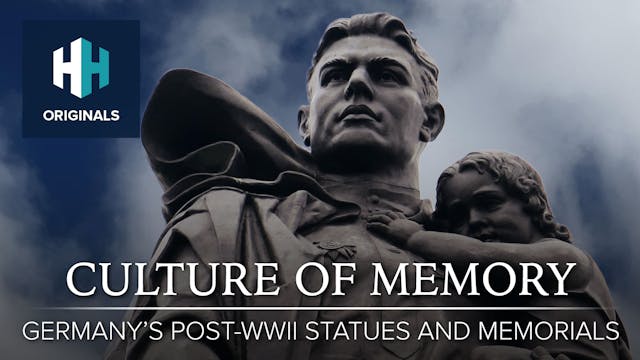The host of History Hit's 'Warfare' podcast James Rogers sits down with author and military historian John Buckley in the (IWM) Churchill War Rooms to discuss his new book: 'The Armchair General: Can You Defeat the Nazis?'
Listen to the Warfare podcast here: https://play.acast.com/s/the-world-wars
In this episode, the two discuss why and how Winston Churchill was chosen to replace Neville Chamberlain, whose policy of appeasement had failed to secure peace in Europe, and how his characteristics enabled him to lead Britain through its so-called Darkest Hour. How did Churchill manage to defeat his greatest political rival Lord Halifax to become prime minister? And what might have happened if Churchill hadn't been chosen to lead the country?
How close was he to making a peace deal with Hitler? When was Britain closest to losing the war? What made Winston Churchill the ideal wartime leader? Find out in this video!
John's book invites you to take the hotseat and make the key decisions that swung the result of the Second World War. It focusses on eight pivotal moments: Britain's Darkest Hour, 1940; The War in North Africa; Stalin's War on the Eastern Front; The Pacific Battle of Midway; The Dresden Bomber Offensive; Casablanca; Arnhem and Operation Market Garden; The Bomb and Hiroshima.
Up Next in World War Two
-
Could You Survive on British World Wa...
In January 1940, the British government introduced food rationing. The scheme was designed to ensure fair shares for all at a time of national shortage. The Ministry of Food was responsible for overseeing rationing. Every man, woman and child was given a ration book with coupons. These were requi...
-
The Savage Storm: The Allied Invasion...
The Italian campaign in September 1943, spearheaded by the US 5th and British 8th Armies, is one of the most dramatic campaigns of the entire Second World War - it was here that Hitler’s ‘Fortress Europe’ would finally be pierced. By the beginning of October, after a tough fight to gain a foothol...
-
Culture of Memory: Germany's Post-WW2...
Throughout Germany post World War Two monuments can be found in all shapes and sizes. But what they are memorialising is unique: ‘Erinnerungskultur’ – ‘culture of memory’. Focused around the sins of Nazi Germany, these memorials were designed to commemorate the country’s sins between 1933 and 194...




2 Comments